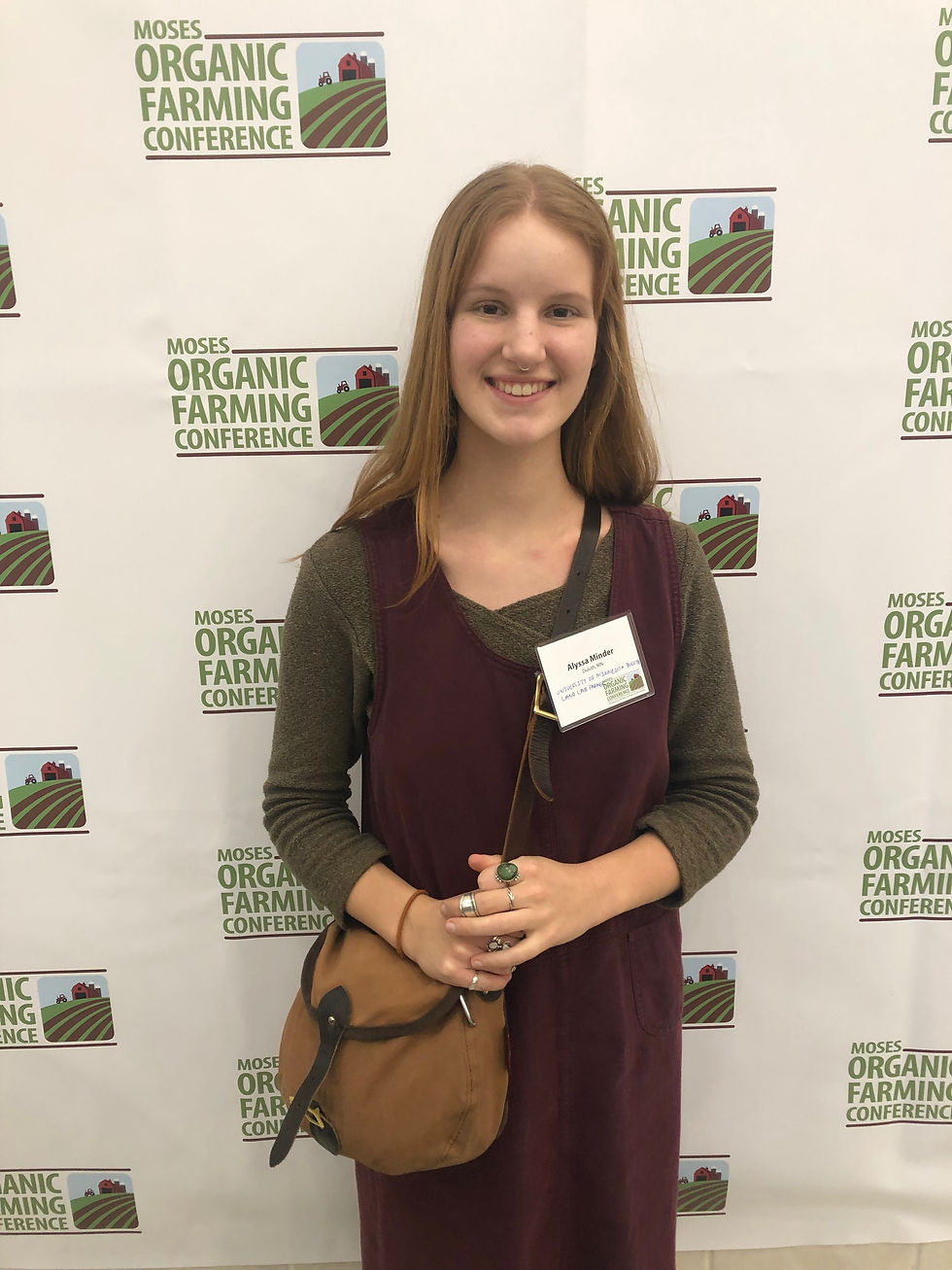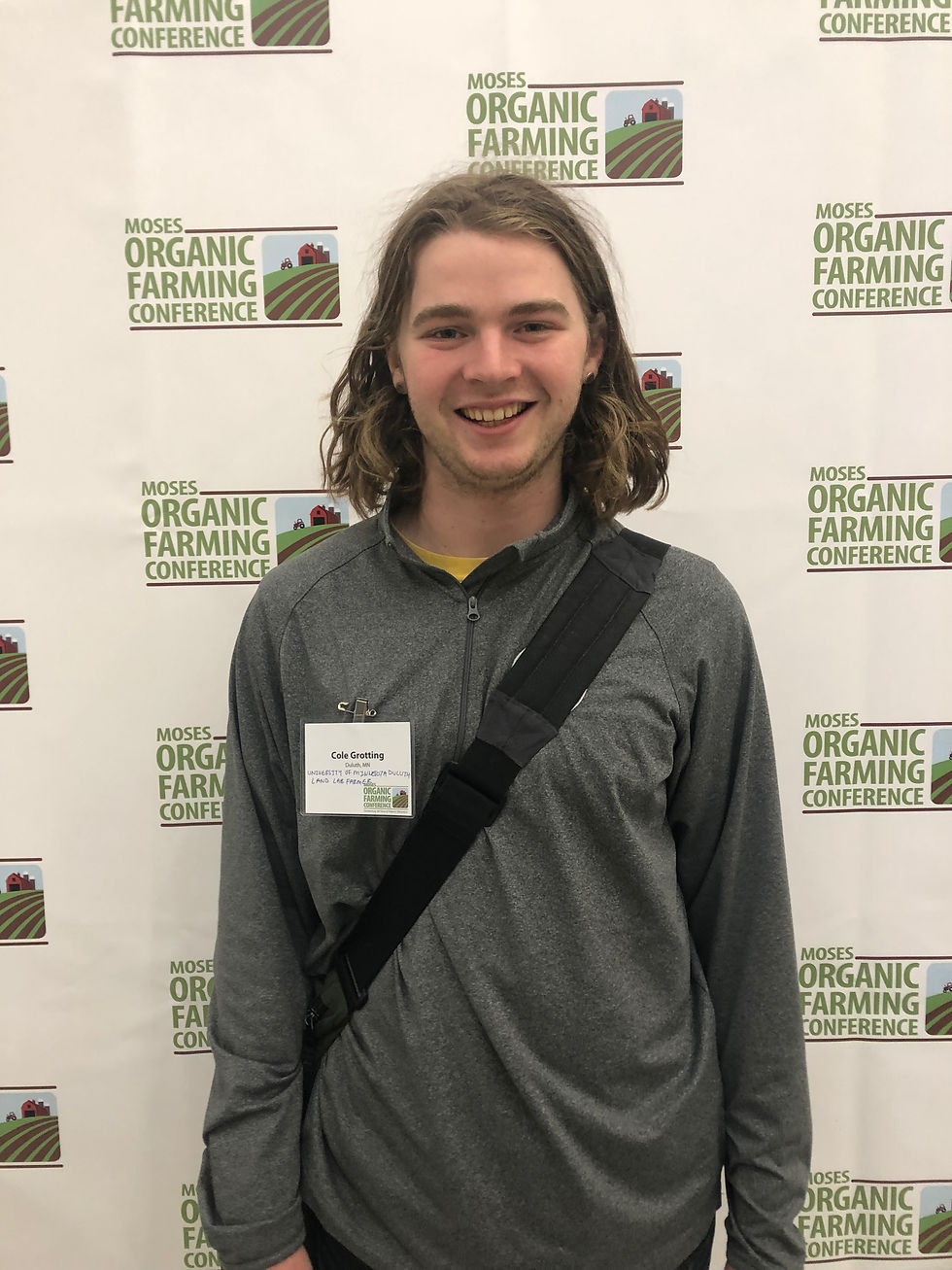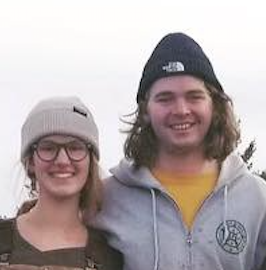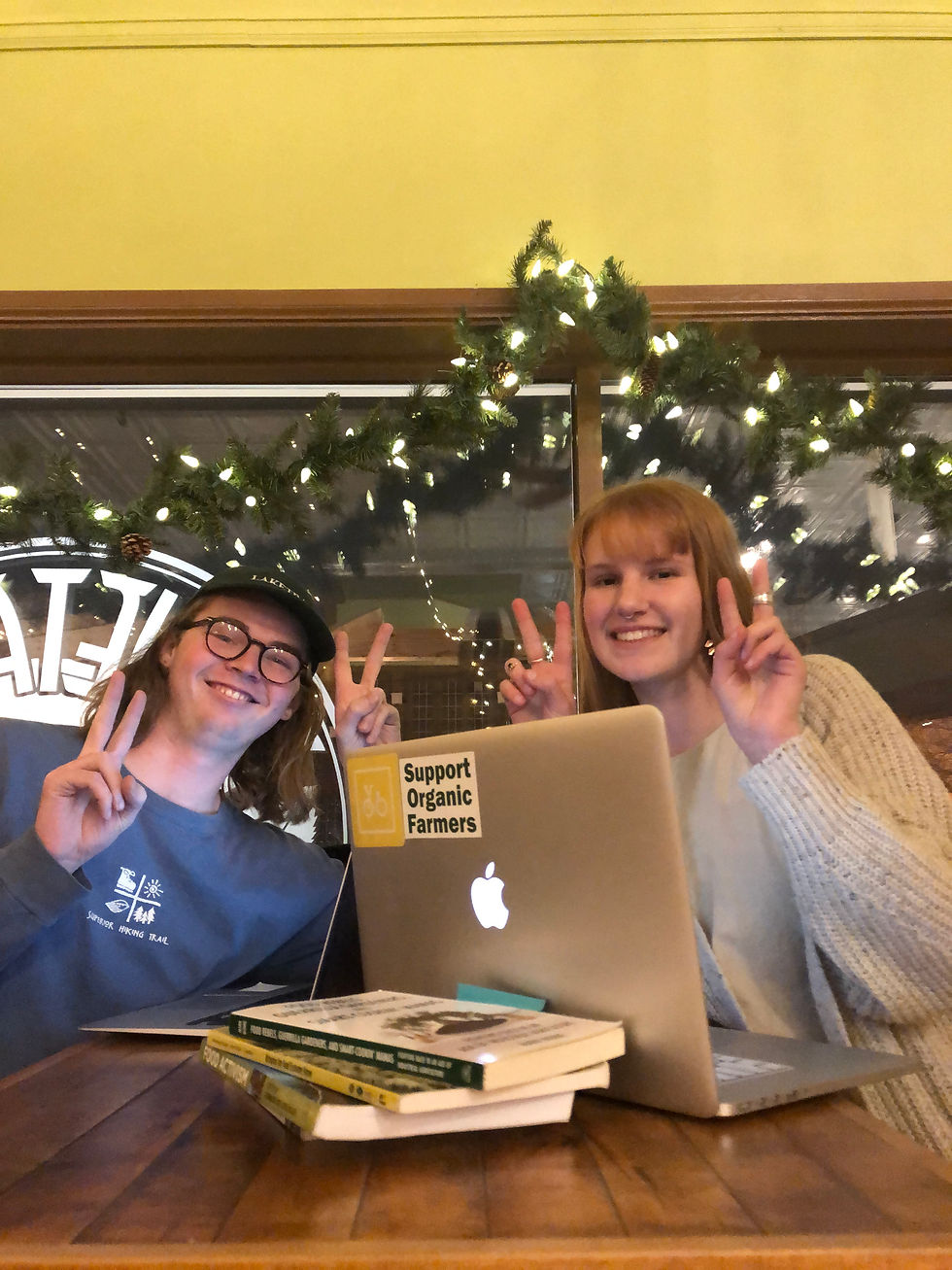MOSES Organic Farming Conference 2019!
- Cole and Alyssa

- Mar 5, 2019
- 3 min read
30 Years of MOSES Organic Farming Conference!
Alyssas MOSES 2019 Story
Cole and myself had once again, for the second year in a row, the privilege to attend the MOSES Organic Farming Conference (courtesy of the UMD GUESS department). Which for those who don’t know is a weekend spent in Wisconsin with 3,000 other organic farmers and
producers with dozens of breakout sessions, interesting topic lectures and keynote speakers, in addition to 100+ vendors where organic companies and organizations are represented. It’s a big deal in the organic farming community, and easily the organic event of the year, where 2019 marked the 30th year of MOSES!

I’m extremely grateful to have been able to attend and have time designated to learn and gain more skills to better my own future in the organic movement and better my work for the Land Lab. I went to sessions on value added products, managing stress in the field, understanding organic certification labels, overwintering bees, and lastly I’m eager to apply this knowledge to the continued work in restructuring the Land Lab, I believe MOSES has allowed my work to be more holistic regarding my research. MOSES was a research opportunity that took place outside the internet or a book and I am very thankful I was able to have such unique opportunities for the betterment of the Land Lab provided through the GUESS department funding. Research is still being done by both Cole and I as we try to find the best means to improve the model of the Land Lab….. stay tuned.
Keep an eye out for more updates on the work Cole and I are doing, and continue to show your support, we cannot do this without you!
Happy Farming,
-Alyssa

Cols MOSES 2019 Story
This past weekend I had the pleasure of attending the MOSES Organic Farming Conference for the 2nd year in La Crosse, Wisconsin. The weekend provided me with exposure to the latest research in organic, sustainable, and regenerative agriculture practices, the opportunity to network on behalf of the Land Lab, interfacing with a diverse group of people who are all committed to strengthening local food systems in their communities.
The seminars I attended included: “Soil Health and Fertility”, “Planning Successful Farm Field Days”, “Farm to School Grants”, “Farming While Black”, “Minimal Till Farming and Cover Crops”, and “Regenerative Agriculture and Silvopasture.” These seminars helped me gain valuable insights into many of the different facets of the local and organic food movements. Seminars covered both the technical aspects of efficiently growing produce with practices that grow organic matter and increase biodiversity in our soil (cover crops, minimal till, manure and composting, adding soil amendments, etc.) as well as the many social justice issues in the local food community that need to be addressed.
I am excited to implement what I learned in “Planning Successful Farm Field Days” and some roundtables and seminar content about funding and grant opportunities into our white paper and our ideas for the future structure of the Land Lab. As we look to expand student and community engagement, developing more curriculum for field days will be extremely helpful! In the social justice realm, land access issues for farmers of color and giving credit to indigenous american, african, and latinx communities for practices that have been co-opted by the sustainable/organic agriculture movement were just a few of the topic covered. Social justice issues are crucial for the Land Lab to address in helping increase opportunity for farmers who come from marginalized communities and making healthy and sustainable food accessible to everyone.
In terms of networking, I was able to form a connection with a woman who coordinates “The Rutabaga Project”, a project sponsored by the Arrowhead Economic Opportunity Agency and the Iron Range Sustainability Partnership which works on food access issues for rural communities. The work they do is a healthy reminder that food deserts are not solely a reality in urban neighborhoods and that industrial agriculture has left behind rural communities as much as it has urban ones. We discussed a few ideas for ways our organizations could potentially partner in the future.
All in all it was an incredible weekend and I am beyond excited to take on the upcoming growing season and incorporate what I have learned into the model we are creating for the Land Lab.
Peace,
Cole

Over the next couple of weeks we will be continuing farm research and starting our official document explaining our proposed farm model via an official White Paper.
Continue to show your support!
-Cole and Alyssa











Comments